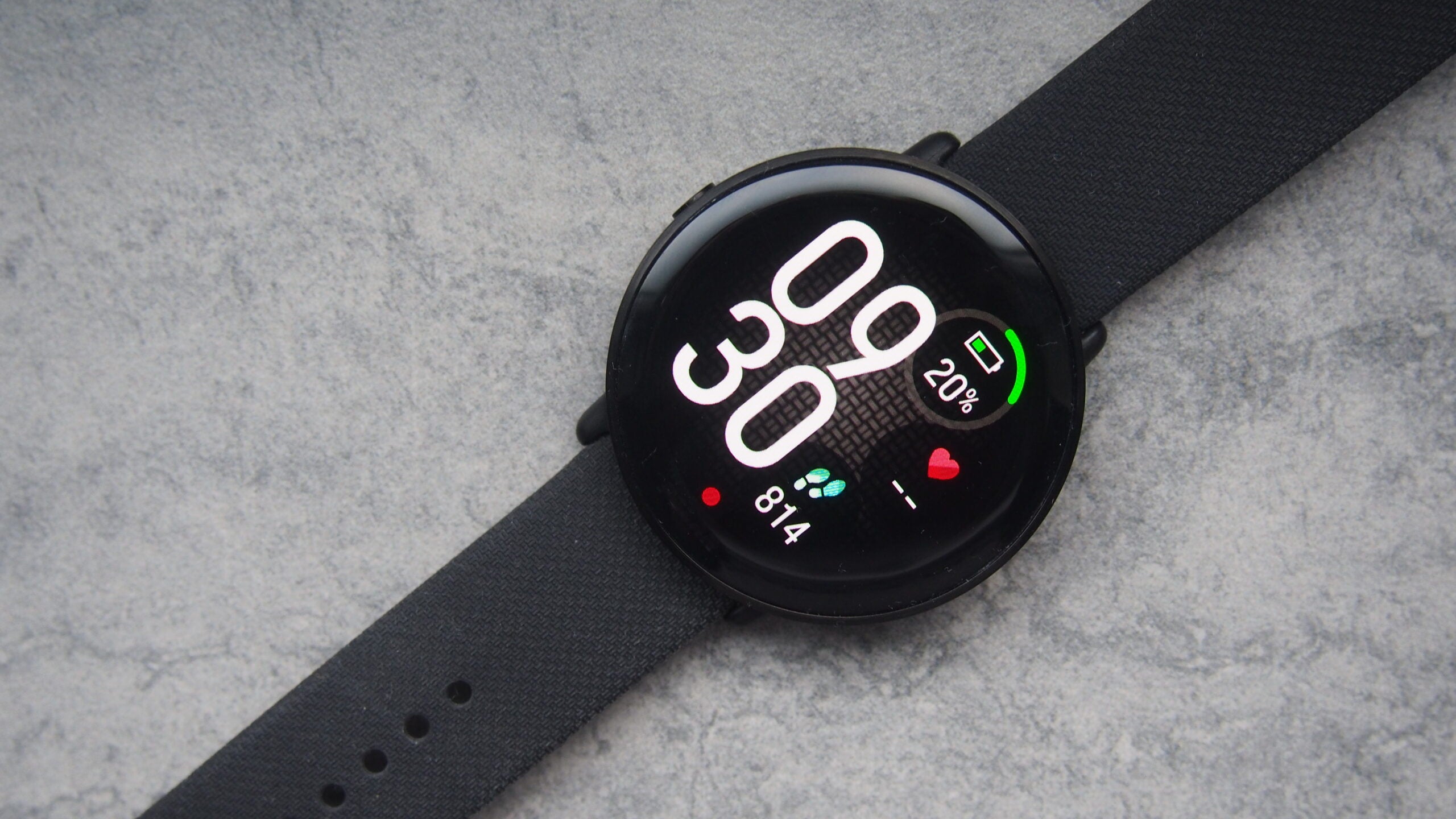The Polar Ignite 3 is a more likeable fitness watch and almost a great sports watch if it wasn’t for some software niggles that let it down.
Pros
- Lovely AMOLED screen
- Includes some of the best Polar features
- Customisable watch faces
Cons
- Software is very laggy
- Battery drain with always-on display and overnight
- Screen already has a scratch
- Big price jump from Ignite 2
Availability
- UKRRP: £289
- USARRP: $329.95
-
Curved AMOLED touchscreen display:The brighter screen is easier to read outdoors -
FitSpark suggested workouts:A workout routine on your wrist -
Voice guidance:Ongoing assistance during workouts
Introduction
The Polar Ignite 3 is what Polar refers to as a fitness watch, and it’s capable of doing a lot of the same things as the Pacer and Vantage series multisport watches.
It will track your indoor and outdoor workout time, behave like a smartwatch when you’re not breaking a sweat, all while bringing in some interesting features that are entirely new to the Polar watch family.
The big one is that this is the first Polar watch to include an AMOLED display. It’s also the first to include a dual-frequency GPS mode, joining Garmin, Apple, Huawei, Coros and Amazfit in promising to improve tracking of your movements in the outdoors.
Those new features do come at an increased price on the Ignite 2 however, so is that price hike justified? Here’s our verdict.
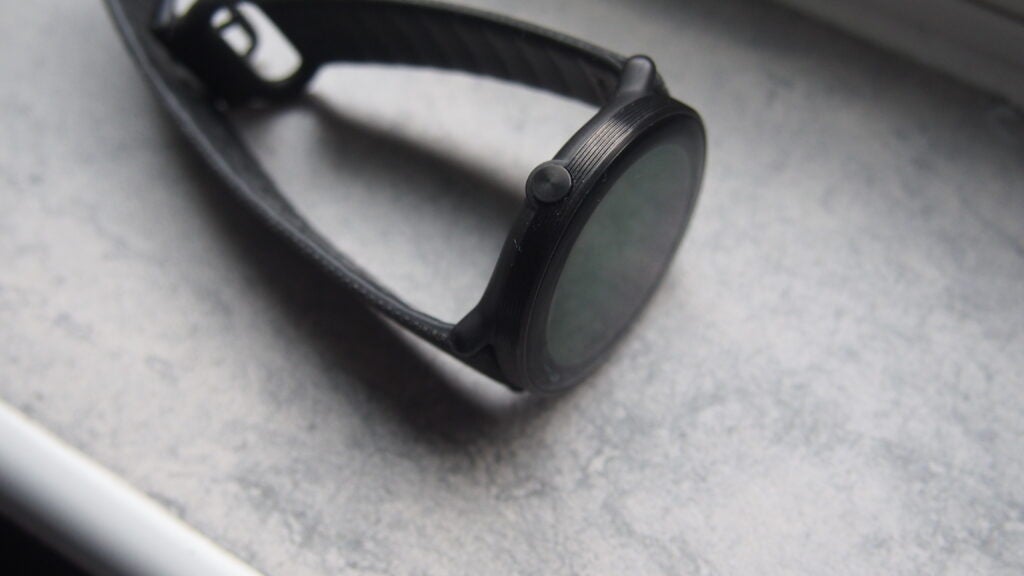
Design and screen
- 43mm case
- AMOLED touchscreen display
- Waterproof up to 30 metres
Polar has been moving towards a more stylish and less sporty design with the Ignite series and that continues with the Ignite 3. It’s a very sleek, unisex design that comes in four case colours and can be partnered up with silicone, leather and nylon straps to give it a more fashionable edge.
The size of the plastic case remains the same, as is the overall weight of 35g but it has jumped up 1mm in thickness. It’s still a slim watch with an attractive steel bezel, it’s just not as slender as its predecessor.
Polar has, for some reason, opted to change the style of the 20mm strap bundled with the Ignite 3 and it’s definitely not for the better. We’re mainly directing our frustrations at the strap clasp, which is a more awkward and uncomfortable one to get into place.
There’s just the one physical button alongside the star of the show, which is a new 1.28-inch 416 x 416 AMOLED touchscreen display. That’s a change in screen technology and slight jump up in screen size as well, and it’s all for the better. You do still have some not so lovely screen bezel there, but the curved nature of the display and Polar’s pick of watch faces do a very good job of masking its presence.
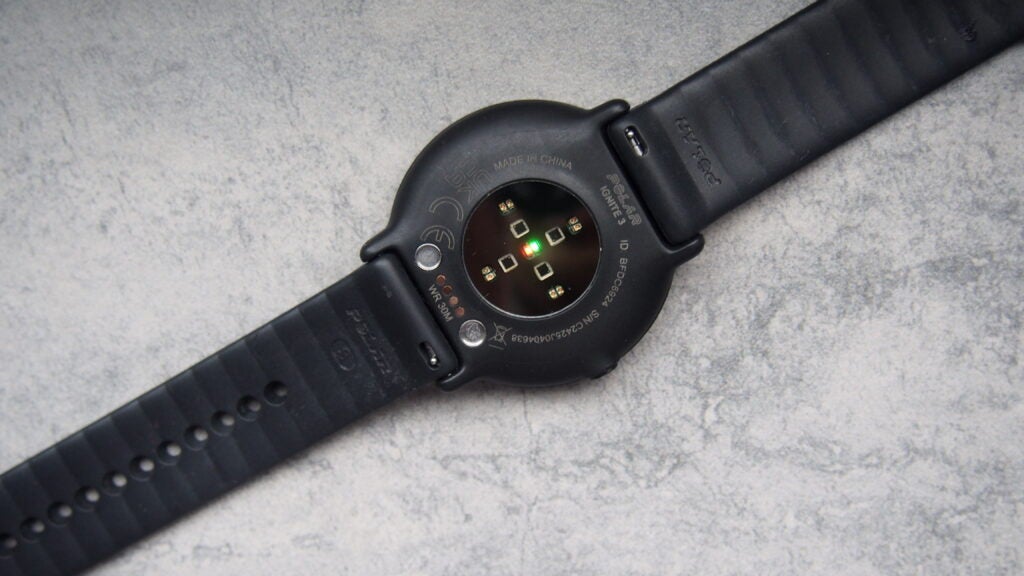
It’s a nicely bright, vibrant and colourful screen and a massive step up from the TFT screen on the Ignite 2. Like a lot of AMOLED screens it can still struggle in brighter sunlight, but visibility on the whole is solid.
You can set that screen to be on 24/7 but as we’ll get into later, it really does hog the battery. There is a raise to wake gesture mode here but it certainly isn’t the most responsive.
Polar has added Gorilla Glass 3.0 into the mix here to offer an extra source of screen protection but within a few weeks of testing it’s already picked up a scratch that runs right across the screen, so it clearly wasn’t enough protection.
While offering a solitary physical button to get you into the main menu screen is welcomed, it felt at times that the Ignite 3 could do with an extra button, especially during workout tracking and if you don’t have the screen set to always-on. As mentioned, the raise to wake isn’t very responsive and it means pressing the physical button to wake up the screen, which can often mean accidentally pausing the workout tracking.
The Ignite 3’s water resistance remains the same as the Ignite 2, giving you something that’s fit to be submerged in water up to 30 metres depth.
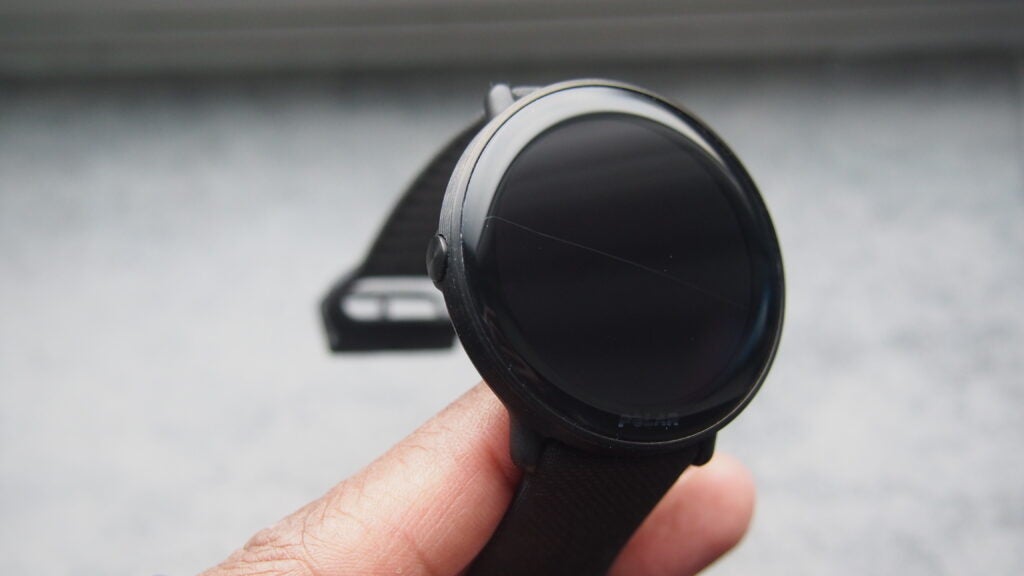
Performance and software
- Faster processing than Ignite 2
- Increased RAM
- View notifications and music controls
With the move to an AMOLED display Polar has sought to make some changes to the Ignite’s interface to better suit the higher quality screen. That interface in general feels bigger and bolder and makes the Ignite 3 feel more like a smartwatch than a sports watch with smartwatch-like features.
It means you can now have watch faces with complications (widgets) like heart rate, step counts and battery status. You can swipe up from the main watch face screen to see phone notifications that won’t disappear until you’ve interacted with them. Swipe left and right from the same place and you can see full-screened widgets for things like music controls, training insights like Cardio load status and more detailed weather forecasts.
While that interface feels well optimised to that more vibrant display, whatever is powering things isn’t so impressive. Polar says the Ignite 3 offers two times faster processing than the Ignite 2 and a jump up from 0.64MB RAM to 5MB RAM.
In reality, the Ignite 3 is still a little laggy, whether it’s swiping to view your notification stream, or the response of the physical button to let you jump back a screen, there’s some not so nice moments. Polar has sought to address these issues with a firmware update already, but sadly it hasn’t had the desired effect.
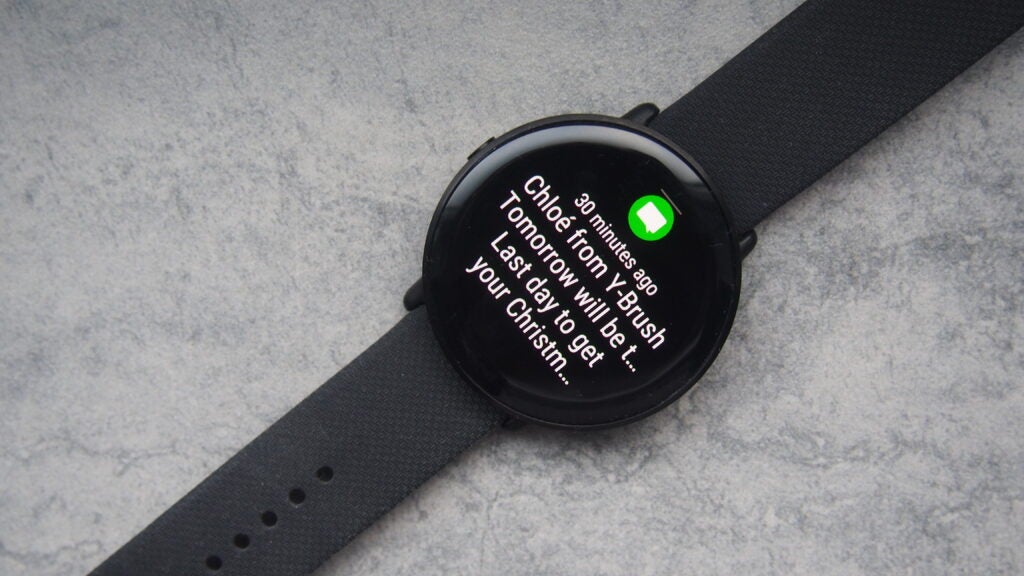
Tracking and features
- 150 sporting modes
- Sleep Gate offers sleep time recommendations
- Voice guidance
- Dual-frequency GPS
Polar calls this a fitness watch but this is a multisports watch that can track runs, cycling, swims (pool only) and has profiles for over 150 sporting modes. It also carries many of the training features included on Polar’s Pacer series of watches with less on offer on the navigation front, in comparison.
One surprising inclusion here is a dual-frequency GPS mode, which makes it the first Polar watch to include a feature that promises more accurate positioning data when tracking near tall buildings or in bad weather where satellite interference can increase.
As far as how well that dual-frequency GPS mode performed, we’d say it did okay in general though doesn’t quite match up to similar modes on Apple and Amazfit watches with dual-frequency GPS. Against the multiband mode on Garmin’s Epix 2 and Marq Athlete Gen 2 watches, core data like distance tracking and average pace were well matched. In those more challenging areas at risk of greater satellite interference, the Ignite 3 did still have our GPS tracks running through buildings.
Outside of that dual-frequency GPS mode, Polar includes the same Precision Prime optical heart rate sensor technology used on its previous Ignite watch and the results were a little inconsistent on the accuracy front. On some activities average heart rate and maximum heart rate readings were hugely out of sync with an external heart rate monitor. However, you can wirelessly connect the watch to an external heart rate monitor and that’s what we’d do if you care about those heart rate insights.
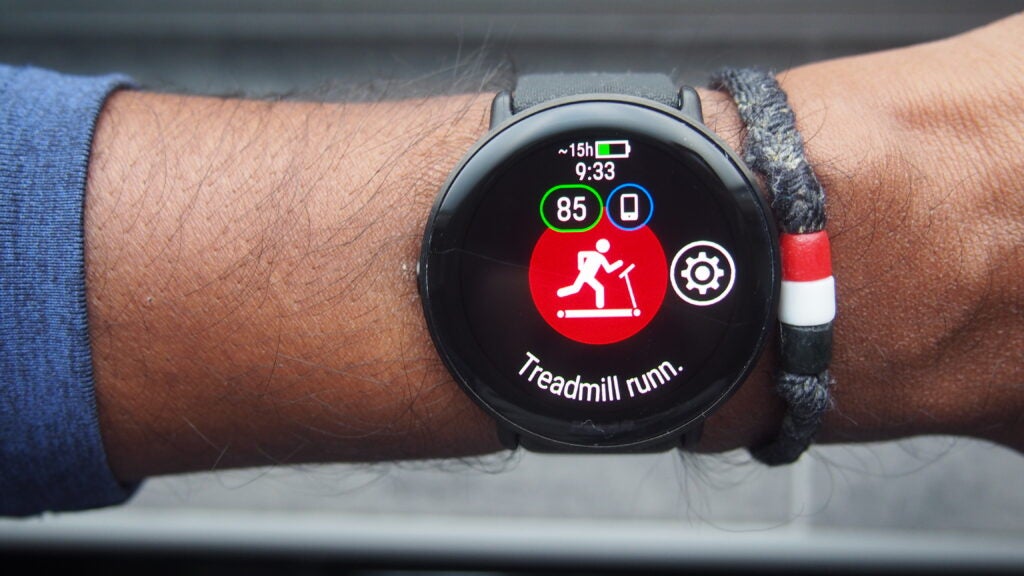
Polar has also included features to appeal to fitness newbies. It still has its great FitSpark suggested workouts based around strength, cardio and supportive exercises, depending on your workout history. It’s added voice guidance, which essentially just gives you updates on progress during a workout and is hardly revolutionary. You also now get more of Polar’s performance evaluations with running and walking tests now included to better assess your current level of fitness.
On the outdoor front, Polar’s brought in its FuelWise smart fueling reminders, which do feel a bit out of place here. There’s Training Load Pro and energy sources insights to delve deeper into your workout data too. While you don’t get the level of navigation features on offer from pricier Polar watches, the Ignite 3 does get a back to start mode, to offer a simple and basic hand to return to your starting point.
It still performs as a 24/7 activity tracker and will monitor sleep with Polar adding some new features on the sleep front. There’s a new haptic alarm to gently wake you up though it wasn’t available to test. You can now see how sleep influences and boosts energy levels during the day and a new sleep gate will unlock and tell you the ideal time to go to bed after it’s captured 7 days of sleep data. While core sleep stats like duration and sleep stages were nicely in line with the sleep tracking on the Oura Ring 3, those additional insights much like Polar’s Nightly Recharge measurements could be better communicated and delivered on and off the watch.
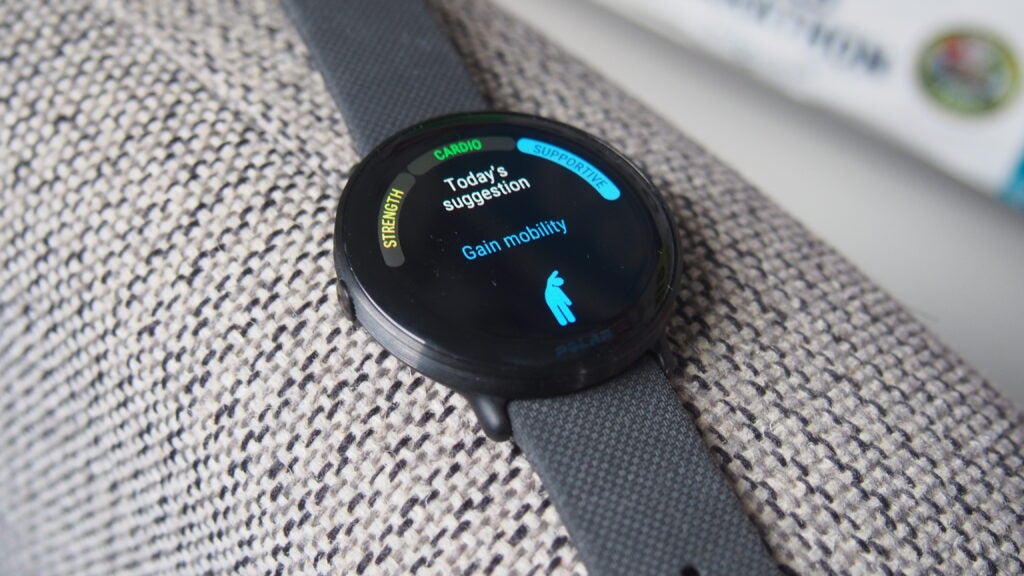
Battery life
- Up to 5-days battery life in watch mode
- Up to 30-hours GPS battery life
- 100-hours in power save training mode
Polar hasn’t budged from the up to 5-day battery life it promised on the first two Ignite watches and based on our testing time, that’s exactly what you get here.
If you don’t have the screen set to always-on, then the battery drop-off does average out at around 20% a day. A large portion of that drop-off happens overnight with that rich sleep tracking really sucking the battery.
When you switch the screen to always-on, that battery number drops in a big way and you will get just over a day of battery life here.
In tracking mode, Polar says you can get up to 30-hours in GPS battery life. An hour of outdoor running with the highest GPS mode in use saw battery drop by 5%. That would work out to about 20 hours. If you switch to the less accurate GPS mode, you’re definitely going to get closer to that promised 30-hour mark.
Latest deals
Should you buy it?
You want a sleek sports watch with a great screen: Polar builds on the look and features of the Ignite 2 in a really positive way to help make this a better rival for similarly priced sporty smartwatches.
You want lots of smartwatch features: Outside of viewing notifications and music controls and some nice watch faces, you’ll get better smartwatch features from watches like the Venu 2 and the Apple Watch SE.
Final Thoughts
The Polar Ignite 3 packs in features we’re surprised weren’t present on Polar’s more performance-centric watches, but the one that matters here is that AMOLED screen. It helps to build on the much improved look we got with the Ignite 2 albeit that screen has already picked up a scratch. Those new features and screen come at a pretty sizable cost compared to the Ignite 2, so if you want that nicer screen and the extra software smarts, you’re going to have to pay more for them. That laggy software and screen durability question marks does take some gloss off what is a solid AMOLED-packing multisports watch.
How we test
We thoroughly test every fitness tracker we review. We use industry standard testing to compare features properly and we use the watch as our main device over the review period. We’ll always tell you what we find and we never, ever, accept money to review a product.
Worn as our main tracker during the testing period
Heart rate data compared against dedicated heart rate devices
FAQs
You can shower with the Polar Ignite 3 thanks to the WR30 water resistance rating it carries, which means it’s safe to be submerged in water up to 30 metres depth.
Yes, you can change the watch face on the Polar Ignite 3 by going to the Settings menu on the watch and looking for the watch face option.
Sustainability
TrustedReviews’ holds the fact that global warming is not a myth as a core value and will continuously endeavor to help protect our planet from harm in its business practices.
As part of this mission, whenever we review a product we send the company a series of questions to help us gauge and make transparent the impact the device has on the environment.
We currently haven’t received answers to the questions on this product, but will update this page the moment we do. You can see a detailed breakdown of the questions we ask and why in our sustainability info page.
The Polar Ignite 3 is a more likeable fitness watch and almost a great sports watch if it wasn’t for some software niggles that let it down.
Pros
- Lovely AMOLED screen
- Includes some of the best Polar features
- Customisable watch faces
Cons
- Software is very laggy
- Battery drain with always-on display and overnight
- Screen already has a scratch
- Big price jump from Ignite 2
Availability
- UKRRP: £289
- USARRP: $329.95
-
Curved AMOLED touchscreen display:The brighter screen is easier to read outdoors -
FitSpark suggested workouts:A workout routine on your wrist -
Voice guidance:Ongoing assistance during workouts
Introduction
The Polar Ignite 3 is what Polar refers to as a fitness watch, and it’s capable of doing a lot of the same things as the Pacer and Vantage series multisport watches.
It will track your indoor and outdoor workout time, behave like a smartwatch when you’re not breaking a sweat, all while bringing in some interesting features that are entirely new to the Polar watch family.
The big one is that this is the first Polar watch to include an AMOLED display. It’s also the first to include a dual-frequency GPS mode, joining Garmin, Apple, Huawei, Coros and Amazfit in promising to improve tracking of your movements in the outdoors.
Those new features do come at an increased price on the Ignite 2 however, so is that price hike justified? Here’s our verdict.

Design and screen
- 43mm case
- AMOLED touchscreen display
- Waterproof up to 30 metres
Polar has been moving towards a more stylish and less sporty design with the Ignite series and that continues with the Ignite 3. It’s a very sleek, unisex design that comes in four case colours and can be partnered up with silicone, leather and nylon straps to give it a more fashionable edge.
The size of the plastic case remains the same, as is the overall weight of 35g but it has jumped up 1mm in thickness. It’s still a slim watch with an attractive steel bezel, it’s just not as slender as its predecessor.
Polar has, for some reason, opted to change the style of the 20mm strap bundled with the Ignite 3 and it’s definitely not for the better. We’re mainly directing our frustrations at the strap clasp, which is a more awkward and uncomfortable one to get into place.
There’s just the one physical button alongside the star of the show, which is a new 1.28-inch 416 x 416 AMOLED touchscreen display. That’s a change in screen technology and slight jump up in screen size as well, and it’s all for the better. You do still have some not so lovely screen bezel there, but the curved nature of the display and Polar’s pick of watch faces do a very good job of masking its presence.

It’s a nicely bright, vibrant and colourful screen and a massive step up from the TFT screen on the Ignite 2. Like a lot of AMOLED screens it can still struggle in brighter sunlight, but visibility on the whole is solid.
You can set that screen to be on 24/7 but as we’ll get into later, it really does hog the battery. There is a raise to wake gesture mode here but it certainly isn’t the most responsive.
Polar has added Gorilla Glass 3.0 into the mix here to offer an extra source of screen protection but within a few weeks of testing it’s already picked up a scratch that runs right across the screen, so it clearly wasn’t enough protection.
While offering a solitary physical button to get you into the main menu screen is welcomed, it felt at times that the Ignite 3 could do with an extra button, especially during workout tracking and if you don’t have the screen set to always-on. As mentioned, the raise to wake isn’t very responsive and it means pressing the physical button to wake up the screen, which can often mean accidentally pausing the workout tracking.
The Ignite 3’s water resistance remains the same as the Ignite 2, giving you something that’s fit to be submerged in water up to 30 metres depth.

Performance and software
- Faster processing than Ignite 2
- Increased RAM
- View notifications and music controls
With the move to an AMOLED display Polar has sought to make some changes to the Ignite’s interface to better suit the higher quality screen. That interface in general feels bigger and bolder and makes the Ignite 3 feel more like a smartwatch than a sports watch with smartwatch-like features.
It means you can now have watch faces with complications (widgets) like heart rate, step counts and battery status. You can swipe up from the main watch face screen to see phone notifications that won’t disappear until you’ve interacted with them. Swipe left and right from the same place and you can see full-screened widgets for things like music controls, training insights like Cardio load status and more detailed weather forecasts.
While that interface feels well optimised to that more vibrant display, whatever is powering things isn’t so impressive. Polar says the Ignite 3 offers two times faster processing than the Ignite 2 and a jump up from 0.64MB RAM to 5MB RAM.
In reality, the Ignite 3 is still a little laggy, whether it’s swiping to view your notification stream, or the response of the physical button to let you jump back a screen, there’s some not so nice moments. Polar has sought to address these issues with a firmware update already, but sadly it hasn’t had the desired effect.

Tracking and features
- 150 sporting modes
- Sleep Gate offers sleep time recommendations
- Voice guidance
- Dual-frequency GPS
Polar calls this a fitness watch but this is a multisports watch that can track runs, cycling, swims (pool only) and has profiles for over 150 sporting modes. It also carries many of the training features included on Polar’s Pacer series of watches with less on offer on the navigation front, in comparison.
One surprising inclusion here is a dual-frequency GPS mode, which makes it the first Polar watch to include a feature that promises more accurate positioning data when tracking near tall buildings or in bad weather where satellite interference can increase.
As far as how well that dual-frequency GPS mode performed, we’d say it did okay in general though doesn’t quite match up to similar modes on Apple and Amazfit watches with dual-frequency GPS. Against the multiband mode on Garmin’s Epix 2 and Marq Athlete Gen 2 watches, core data like distance tracking and average pace were well matched. In those more challenging areas at risk of greater satellite interference, the Ignite 3 did still have our GPS tracks running through buildings.
Outside of that dual-frequency GPS mode, Polar includes the same Precision Prime optical heart rate sensor technology used on its previous Ignite watch and the results were a little inconsistent on the accuracy front. On some activities average heart rate and maximum heart rate readings were hugely out of sync with an external heart rate monitor. However, you can wirelessly connect the watch to an external heart rate monitor and that’s what we’d do if you care about those heart rate insights.

Polar has also included features to appeal to fitness newbies. It still has its great FitSpark suggested workouts based around strength, cardio and supportive exercises, depending on your workout history. It’s added voice guidance, which essentially just gives you updates on progress during a workout and is hardly revolutionary. You also now get more of Polar’s performance evaluations with running and walking tests now included to better assess your current level of fitness.
On the outdoor front, Polar’s brought in its FuelWise smart fueling reminders, which do feel a bit out of place here. There’s Training Load Pro and energy sources insights to delve deeper into your workout data too. While you don’t get the level of navigation features on offer from pricier Polar watches, the Ignite 3 does get a back to start mode, to offer a simple and basic hand to return to your starting point.
It still performs as a 24/7 activity tracker and will monitor sleep with Polar adding some new features on the sleep front. There’s a new haptic alarm to gently wake you up though it wasn’t available to test. You can now see how sleep influences and boosts energy levels during the day and a new sleep gate will unlock and tell you the ideal time to go to bed after it’s captured 7 days of sleep data. While core sleep stats like duration and sleep stages were nicely in line with the sleep tracking on the Oura Ring 3, those additional insights much like Polar’s Nightly Recharge measurements could be better communicated and delivered on and off the watch.

Battery life
- Up to 5-days battery life in watch mode
- Up to 30-hours GPS battery life
- 100-hours in power save training mode
Polar hasn’t budged from the up to 5-day battery life it promised on the first two Ignite watches and based on our testing time, that’s exactly what you get here.
If you don’t have the screen set to always-on, then the battery drop-off does average out at around 20% a day. A large portion of that drop-off happens overnight with that rich sleep tracking really sucking the battery.
When you switch the screen to always-on, that battery number drops in a big way and you will get just over a day of battery life here.
In tracking mode, Polar says you can get up to 30-hours in GPS battery life. An hour of outdoor running with the highest GPS mode in use saw battery drop by 5%. That would work out to about 20 hours. If you switch to the less accurate GPS mode, you’re definitely going to get closer to that promised 30-hour mark.
Latest deals
Should you buy it?
You want a sleek sports watch with a great screen: Polar builds on the look and features of the Ignite 2 in a really positive way to help make this a better rival for similarly priced sporty smartwatches.
You want lots of smartwatch features: Outside of viewing notifications and music controls and some nice watch faces, you’ll get better smartwatch features from watches like the Venu 2 and the Apple Watch SE.
Final Thoughts
The Polar Ignite 3 packs in features we’re surprised weren’t present on Polar’s more performance-centric watches, but the one that matters here is that AMOLED screen. It helps to build on the much improved look we got with the Ignite 2 albeit that screen has already picked up a scratch. Those new features and screen come at a pretty sizable cost compared to the Ignite 2, so if you want that nicer screen and the extra software smarts, you’re going to have to pay more for them. That laggy software and screen durability question marks does take some gloss off what is a solid AMOLED-packing multisports watch.
How we test
We thoroughly test every fitness tracker we review. We use industry standard testing to compare features properly and we use the watch as our main device over the review period. We’ll always tell you what we find and we never, ever, accept money to review a product.
Worn as our main tracker during the testing period
Heart rate data compared against dedicated heart rate devices
FAQs
You can shower with the Polar Ignite 3 thanks to the WR30 water resistance rating it carries, which means it’s safe to be submerged in water up to 30 metres depth.
Yes, you can change the watch face on the Polar Ignite 3 by going to the Settings menu on the watch and looking for the watch face option.
Sustainability
TrustedReviews’ holds the fact that global warming is not a myth as a core value and will continuously endeavor to help protect our planet from harm in its business practices.
As part of this mission, whenever we review a product we send the company a series of questions to help us gauge and make transparent the impact the device has on the environment.
We currently haven’t received answers to the questions on this product, but will update this page the moment we do. You can see a detailed breakdown of the questions we ask and why in our sustainability info page.



















